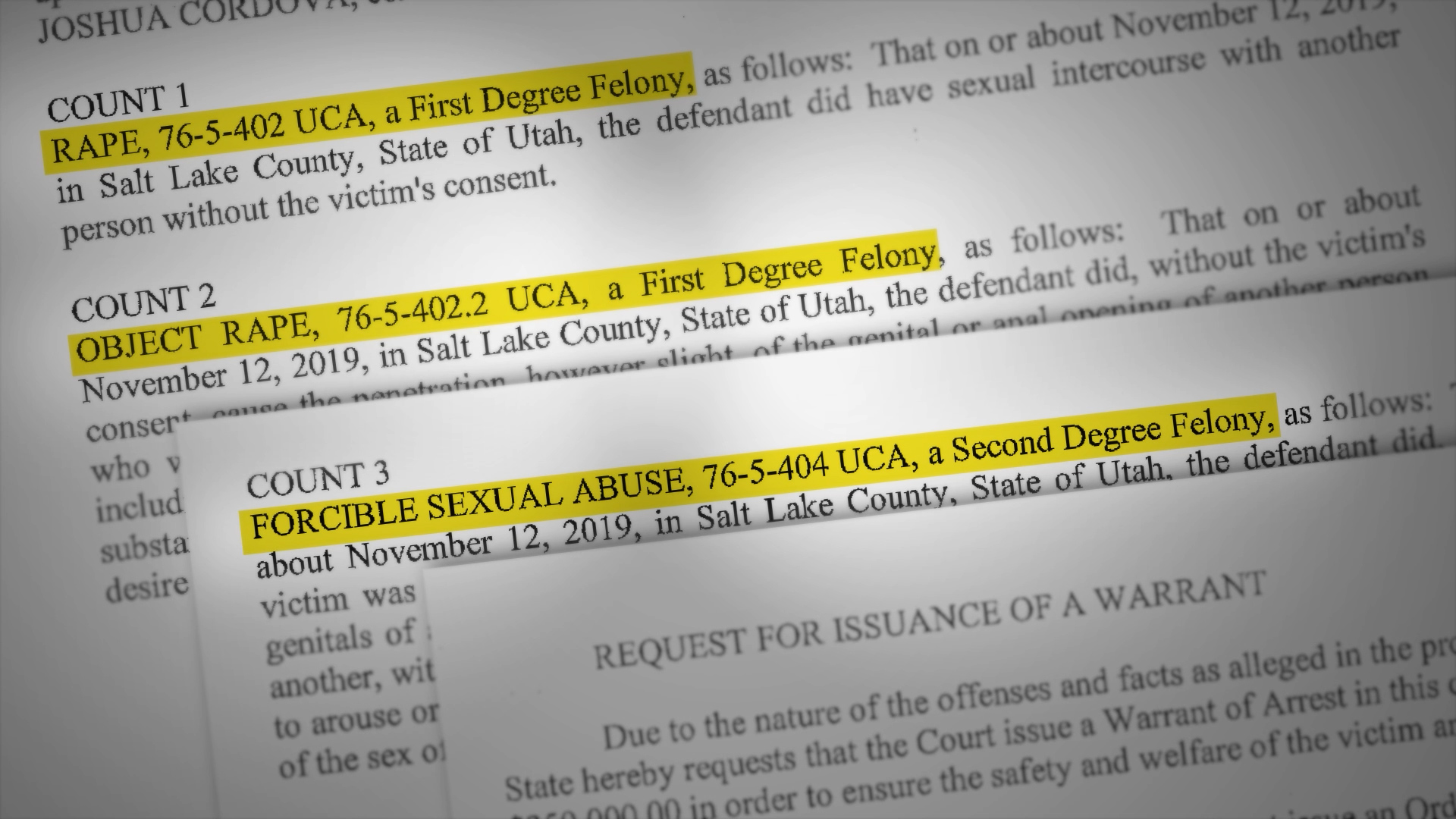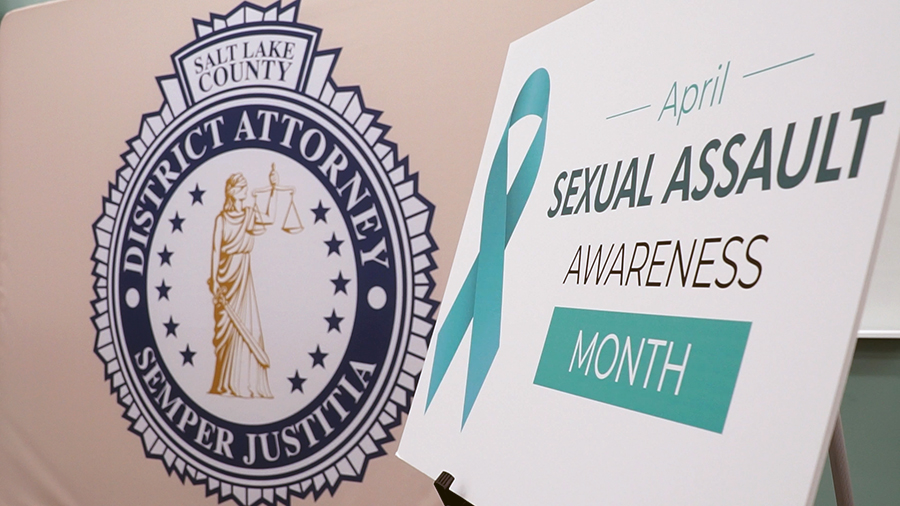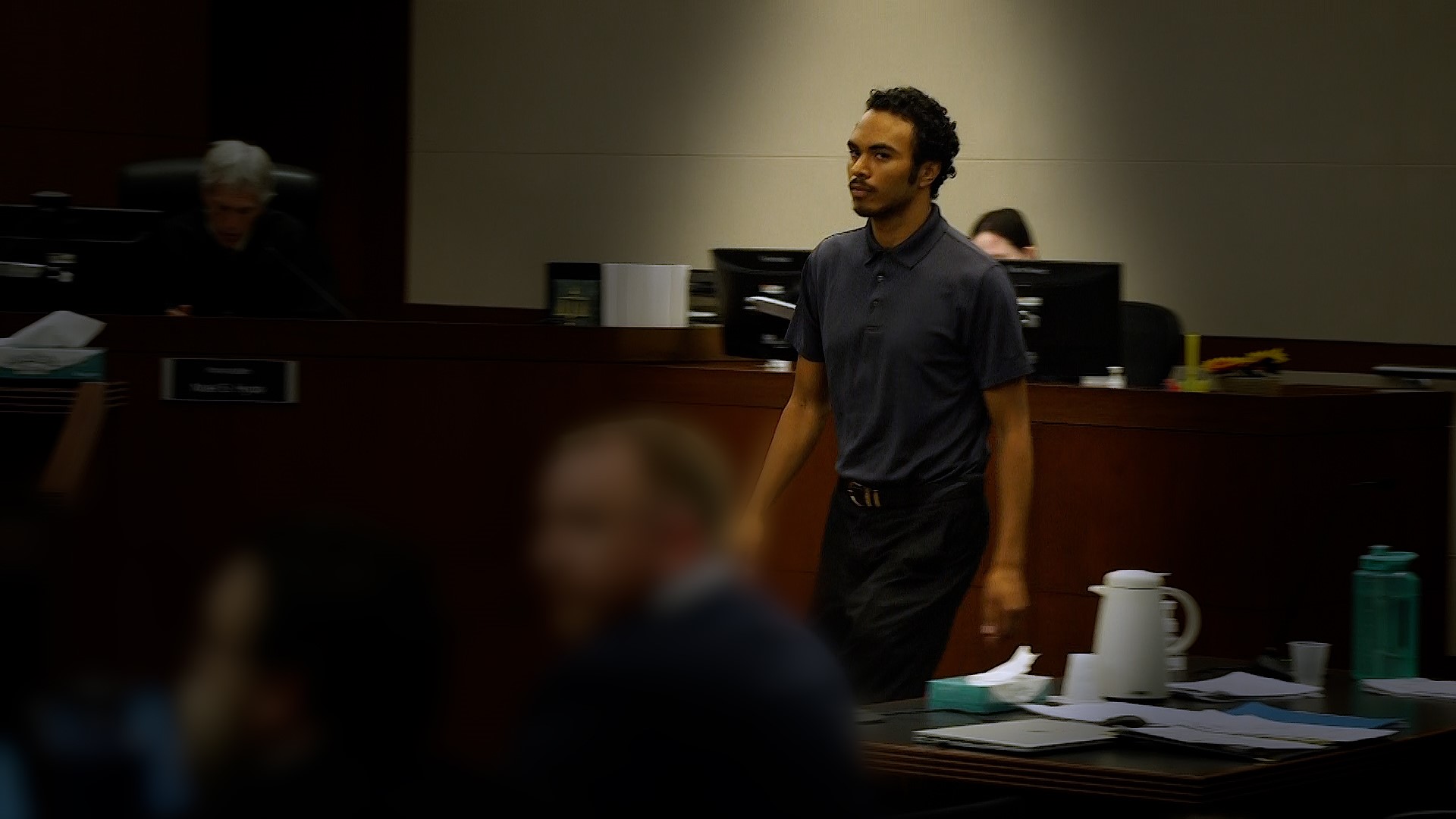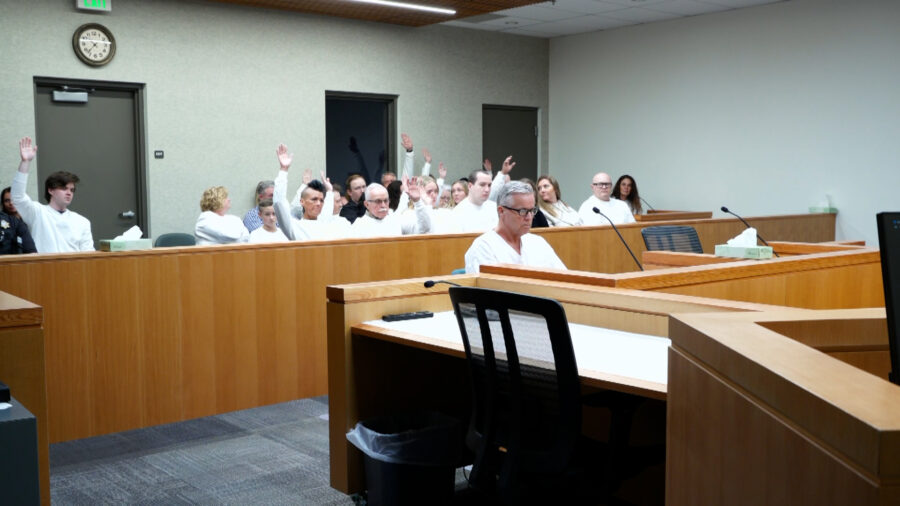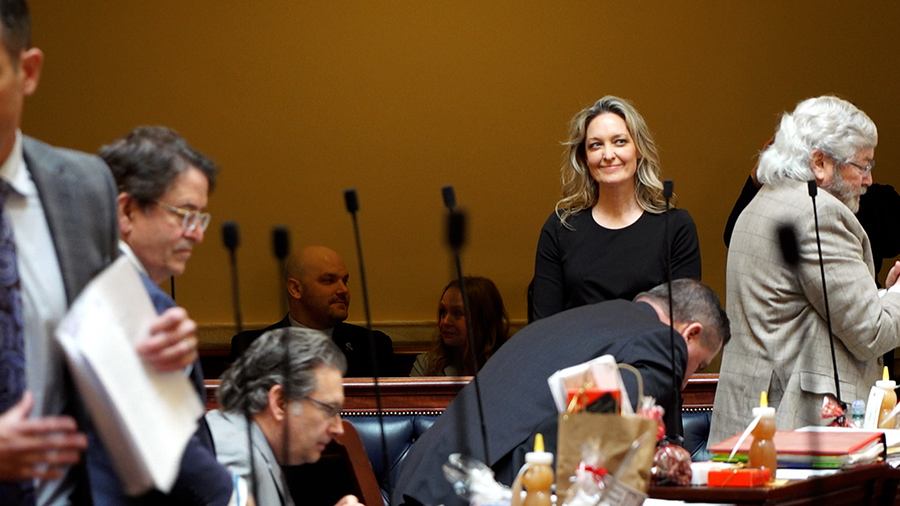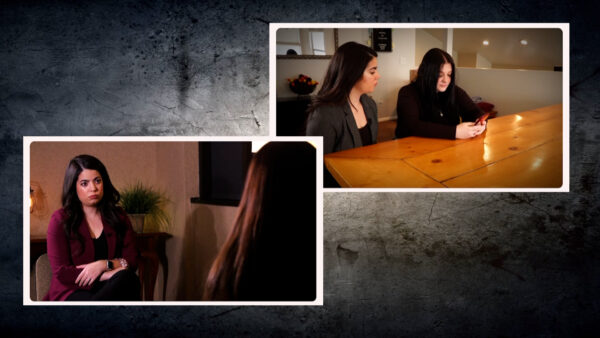Troubling Trend: KSL Investigators uncover sexual assault cases closed without attempts to contact suspects
Dec 20, 2023, 10:04 PM | Updated: 10:57 pm
SALT LAKE CITY – Inside a small interview room with gray walls and a recording camera, Megan Done reported to Salt Lake City Police in 2019 that she’d been sexually assaulted nearly a decade earlier.
“In the future, if someone asked me, ‘Well, what happened to the guy who hurt you?’ I don’t want to say I did nothing,” she told the detective.
Done said it was courage and years of therapy that motivated her to make the report.
“I didn’t really understand what was going on. I was just 18 years old,” Done said about what happened to her nearly 10 years earlier.
Done told the KSL Investigators she knew her case would be a difficult one to prosecute. She and the man dated after the assault she reported. Even if her report couldn’t lead to charges, Done said she expected police to investigate thoroughly. But case records show police ended their investigation without ever trying to speak with the suspect.
“It was just really, really hard to be like, ‘Why can’t you just go talk to him?’” she said.
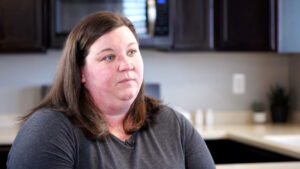
Megan Done made a report of sexual assault to Salt Lake City Police in 2019. (Josh Szymanik, KSL TV)
Done’s report of sexual assault is not the only one collecting dust or closed all together without a key interview ever taking place.
It’s a troubling trend uncovered by the KSL Investigators through more than a year of digging into gaps in Utah’s justice system, and one that goes against nationally recognized best practices for trauma-informed responses to reports of sexual assault.
Best practices
“Of course, you have to make contact with an offender,” said Tom Tremblay, a retired Chief of Police from Burlington, Vermont. “We have a responsibility to hear their account of what happened.”
Tremblay now owns Thomas Tremblay Consulting and Training, and said he helped develop the national curriculum used by the International Association of Chiefs of Police for trauma-informed sexual assault investigations training.
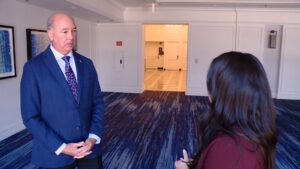
Tom Tremblay speaks with the KSL Investigators in April 2023. (Jack Grimm, KSL-TV)
He teaches that there are three pillars to successful investigations of sexual assault cases: Trauma-informed, victim-centered, and offender-focused.
“If you never talked to the suspect, no offender-focused investigative strategy, you don’t have a promising practice investigation. It’s that simple,” he said.
“You need to thoroughly investigate each and every case that you have,” said Louisiana State University law professor Lisa Avalos.

Lisa Avalos speaks at an End Violence Against Women International conference held in Chicago in April 2023. (Jack Grimm, KSL TV)
She pointed to research that shows many sexual offenders are serial offenders and said investigators should treat every case like an important piece of a puzzle.
“If we’re throwing away the clues in the trash, throwing away puzzle pieces, we’re not going to solve those crimes,” Avalos told the KSL Investigators.
A troubling trend
Yet the KSL Investigators have found case after case of various Utah agencies failing to attempt to make contact with suspects.
Accused serial predator Joshua Homer is now facing several new charges of rape in Davis County after the KSL Investigators found multiple cases had been shelved without investigators reaching out to him.
And in October, Byron Thad Haderlie was sentenced in a case involving his ex-wife, who reported to the police in Cache County that he had drugged and sexually assaulted her. North Park Police inactivated their investigation into her report twice without trying to talk to him. Investigators finally interviewed him nearly two years later, after he was arrested for drugging and trying to sexually assault a 16-year-old girl.

Byron ‘Thad’ Haderlie is convicted of committing sexual crimes against his ex-wife and a teenage girl. (Josh Szymanik, KSL TV)
People who have been accused of crimes are not legally obligated to speak with investigators or answer any questions, and there’s no guarantee that an interview with a suspect will lead to charges. But in the case against Haderlie, the interview led to both a conviction and a prison sentence.
While law enforcers must meet various standards of proof to take action in many instances – such as having probable cause to make an arrest – there is no evidentiary threshold that must be met in order for an investigator to initiate a consensual conversation with a suspect or person of interest.
‘Why couldn’t they have done those things?’
Done said the Salt Lake City Police detective handling her case did not try to interview a witness who she reported she had confided in about the assault, and he didn’t ask to look at the journals she’d kept, even though they sat inches away from him during her police interview.
‘’Like, why?” she asked. “Why couldn’t they have done those things?”

Done brought her journals in which she’d written about a sexual assault to her interview with police but said the detective did not collect them or ask to make copies. (SLC PD)
In an email to Done reviewed by the KSL Investigators, the detective told her he would submit the case to the Salt Lake County District Attorney’s Office for screening “as is,” and if prosecutors thought they could move forward, then he would “continue the investigation.”
Salt Lake County prosecutors declined the case, and police closed their investigation.
The Salt Lake City Police Department would not make anyone available for an interview about Done’s case. Instead, the department emailed a written statement saying, “The Salt Lake City Police Department stands by its investigation” and that “The Salt Lake City Police Department has an obligation to protect the rights of both the reporting party and those accused of crimes. Balancing these rights can be complex and requires careful and thoughtful consideration of the unique circumstances in every case to uphold the law.”
“I can see both sides of that conversation, and the sense that you always want to leave no stone unturned,” said Salt Lake County District Attorney Sim Gill. “Even though I validate the injury and the harm, we know that objectively, we couldn’t meet that burden of proof.”
Utah prosecutors have told the KSL Investigators that while Utah’s rape statute might appear to be straightforward – cases often hinge on the difficult issue of consent. Prosecutors must prove a suspect was aware or should have been aware of a victim’s non-consent.
Barring a confession from the suspect, Gill said his office did not have the evidence required to bring charges in Done’s case.
And while confessions in sexual assault cases are rare, it’s impossible to know what the man might have said, because no one ever tried to speak with him about Done’s report.
“It’s that one tenth of 1%, right, that kind of holds that hope out,” he said.
Second look
It was that hope that pushed Done to keep trying. In 2020, she submitted her case to the Utah Attorney General’s Office for a second look, under a first-degree felony case review process that is unique to Utah.
“I did speak with a prosecutor on the case and felt that all I received were excuses about why it couldn’t move forward, like it has been too long, and we don’t want to violate his rights, etc.,” Done wrote in her request to the AG’s office seeking a review of her case. “I felt that my voice wasn’t heard and that even though I was violated, they were more concerned for him rather than me as the survivor.”
Done’s request explained that she felt the initial investigation into her case was “not fully complete” and that no one had ever contacted the man to get his side.
“I felt and still feel like this was unacceptable as they should have talked to him about what happened to see if he would have said anything about it,” she wrote.
Email records show an investigator in the AG’s office asked Done for the contact information for the witness Done reported to police she had confided in and photocopies of her journals, correspondence she said gave her hope.
In one email, the investigator even wrote that they were “preparing to go contact the suspect […] in the coming days.”
But once again, Done said her case was closed without that happening.
“At the end, none of it had been done,” she said.

Che Arguello is the dedicated second-look prosecutor in the Utah Attorney General’s Office. (Josh Szymanik, KSL TV)
During an interview with the KSL Investigators, second look prosecutor Che Arguello said he would not discuss the reason why, out of respect for the victim’s privacy rights. When asked whether he would discuss the case if Done provided written consent for him to do so, Arguello said he still would not.
“I am sorry she walked away with the feeling that there wasn’t a complete investigation done,” he said. “Beyond that, I can’t comment.”
‘They don’t want to disturb his life.’
Done and many others have told the KSL Investigators they reported assaults to police in the hopes of protecting others.
“People don’t want to report, and I think this is what they fear,” Done said.

Megan Done told the KSL Investigators she feels her case was never thoroughly investigated. (Josh Szymanik, KSL TV)
She said the multiple agencies that handled her case provided similar reasons for why they would not contact the man she reported.
“It’s been too long, we don’t want to violate his rights, we don’t want to send an officer of the state his door,” she recalled. “They’re saying they don’t want to disturb his life.”
Now, Done hopes sharing her experience publicly can improve how agencies respond to those who report in the future.
“I hope that somebody else doesn’t have to go through what I went through.”
This report is part of a series examining how apparent gaps at every level of Utah’s criminal justice system fail to protect Utahns.
If you have experienced sexual violence, you can access help and resources by calling Utah’s 24-hour Sexual Violence Helpline at 1-888-421-1100. You can also call the Utah’s 24-hour Sexual Violence Helpline at 1-800-656-4673 for free, confidential counseling.
Have you experienced something you think just isn’t right? The KSL Investigators want to help. Submit your tip at investigates@ksl.com or 385-707-6153 so we can get working for you.



